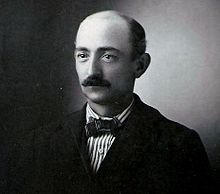Frederick Hinde Zimmerman | |
|---|---|
 Frederick Hinde Zimmerman, 1900 | |
| Chancellor Commander of the Knights of Pythias lodge in Wabash County, Illinois | |
| In office 1906–1915 | |
| Secretary of the Illinois Farmers Institute | |
| In office 1901–1903 | |
| Preceded by | J. E. Seiler |
| Succeeded by | John J. Ewald |
| Personal details | |
| Born | October 17, 1864 Mount Carmel, Illinois |
| Died | September 21, 1924 (aged 59) Grand Rapids Hotel Wabash County, Illinois |
| Resting place | Rose Hill Cemetery Mount Carmel, Illinois |
| Nationality | American |
| Political party | Independent |
| Spouse | Agnes Oldendorf Zimmerman |
| Relations |
|
| Children | Peter Jacob Hinde Zimmerman Rebecca Zimmerman |
| Parent(s) | Jacob Zimmerman Belinda Hinde |
| Occupation | Banker Farmer Real estate entrepreneur Hotel Owner |
| Positions | Founder, CEO, president, Grand Rapids and Hanging Rock Farms Company (1903–1924), Founder, CEO, president, Grand Rapids Hotel Park Resort Company (1920–1924) |
| Signature | |
Frederick Hinde Zimmerman (October 17, 1864 – September 21, 1924) was an American banker, farmer, real estate entrepreneur, businessman, and hotel owner. Due to his large land holdings and expertise in farming, Zimmerman became a notable farmer, breeder, and real estate entrepreneur. Zimmerman's farm, originally purchased by his grandfather Thomas S. Hinde from the federal government in 1815, included the Grand Rapids Dam, Hanging Rock, and Buttercrust. His first experience running a business was in 1883 when he ran a grocery store in Fort Smith, Arkansas with his cousin Harry Hinde. Many of his businesses centered on his family farm, but in later years Zimmerman achieved success through his ownership and investment in mines, banks, and real estate. He also owned or invested in the Hanging Rock and Grand Rapids Dam Farm Company, the Grand Rapids Hotel Park Company, and the Wabash Bull-Frog Mines Company.
Zimmerman was among the fourth generation of the Hinde family in the United States that was begun by his great-grandfather Dr. Thomas Hinde. His grandfather Thomas S. Hinde was a prominent politician and Methodist minister who contributed to the development of Illinois, Indiana, and the spread of the Methodist faith. His father Jacob Zimmerman held various political offices in the state of Illinois and in his early years owned several prominent Democratic newspapers in Ohio and Illinois right before the Civil War. At the age of one, Zimmerman's mother died and he was sent to live with family in Ohio and did not see his father again until he was fourteen. Towards the end of his life, Zimmerman was elected to various positions of leadership in the Knights of Pythias and Illinois Farmers Institute. He was elected secretary of the Illinois Farmers Institute for multiple terms. During Zimmerman's life he managed banks, his family farm in Mount Carmel Precinct, Wabash County, Illinois, the Grand Rapids Hotel near the Grand Rapids Dam, and invested in numerous business ventures.
The Grand Rapids Hotel was one of his most notable accomplishments and soon after opening in 1922 attracted tourists from across the nation. The hotel was one of the largest resorts in the Wabash Valley and at one time had fishing, trap shoots, baseball, golf, boating, swimming, a restaurant, and other recreational activities. The hotel promoted the growth of the region by increasing the number of tourists and by hosting large-scale meetings and public events like celebrations at Hallowe'en, Christmas, and the Fourth of July. He died from complications of a broken hip that he suffered near the Grand Rapids Hotel in 1924 after falling out of his Model T automobile. Five years after Zimmerman died, the hotel was burned to the ground – in 1929 the hotel's manager, Glenn Goodart, caused a fire by dropping a blowtorch in the basement. The hotel was not rebuilt due to a lack of funds and the onset of the Great Depression.